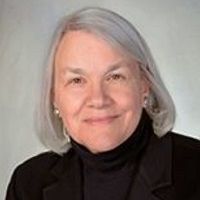Three Overlooked Rewards of Living Longer Lives
Making your retirement savings last multiple decades may be financially daunting, but living to a ripe, old age can be well worth it for individuals, families and the economy.


Profit and prosper with the best of Kiplinger's advice on investing, taxes, retirement, personal finance and much more. Delivered daily. Enter your email in the box and click Sign Me Up.
You are now subscribed
Your newsletter sign-up was successful
Want to add more newsletters?

Delivered daily
Kiplinger Today
Profit and prosper with the best of Kiplinger's advice on investing, taxes, retirement, personal finance and much more delivered daily. Smart money moves start here.

Sent five days a week
Kiplinger A Step Ahead
Get practical help to make better financial decisions in your everyday life, from spending to savings on top deals.

Delivered daily
Kiplinger Closing Bell
Get today's biggest financial and investing headlines delivered to your inbox every day the U.S. stock market is open.

Sent twice a week
Kiplinger Adviser Intel
Financial pros across the country share best practices and fresh tactics to preserve and grow your wealth.

Delivered weekly
Kiplinger Tax Tips
Trim your federal and state tax bills with practical tax-planning and tax-cutting strategies.

Sent twice a week
Kiplinger Retirement Tips
Your twice-a-week guide to planning and enjoying a financially secure and richly rewarding retirement

Sent bimonthly.
Kiplinger Adviser Angle
Insights for advisers, wealth managers and other financial professionals.

Sent twice a week
Kiplinger Investing Weekly
Your twice-a-week roundup of promising stocks, funds, companies and industries you should consider, ones you should avoid, and why.

Sent weekly for six weeks
Kiplinger Invest for Retirement
Your step-by-step six-part series on how to invest for retirement, from devising a successful strategy to exactly which investments to choose.
In the early 1900s, any American over the age of 65 was considered "old." That's understandable because in those days the average life expectancy of U.S. citizens was 47 years. My how things have changed!
Today we define "old" as somewhere north of 90, and by all indications, the definition of old age is going to keep on rising. According to the U.S. Census Bureau projections, by 2050 at least 400,000 of our citizens will be 100 or older. While this is a welcome development and something most of us never imagined, planning for longevity brings a whole new meaning to the idea of creating an "abundant second half."
For many Americans, living really long lives is a double-edged sword. On one hand, the idea of getting more years with the people we love and more time to do the things we enjoy is fantastic. On the other hand, the longer we live, the more money we'll spend; and the more money we spend, the more money we'll need; and the more money we need, the more significant the demands we'll place on our investment portfolios.
From just $107.88 $24.99 for Kiplinger Personal Finance
Become a smarter, better informed investor. Subscribe from just $107.88 $24.99, plus get up to 4 Special Issues

Sign up for Kiplinger’s Free Newsletters
Profit and prosper with the best of expert advice on investing, taxes, retirement, personal finance and more - straight to your e-mail.
Profit and prosper with the best of expert advice - straight to your e-mail.
The quality of our "bonus" years will be directly influenced by the strategy each of us co-creates with our financial advisers, the health care decisions we make, the way we manage our finances and the manner in which we live our lives.
Still, as financially demanding as it can be to plan for a long life, we must remember that it is well worth it. Long life is a gift to each individual. We should also keep in mind some of the less obvious but significant rewards of longevity:
The opportunity to contribute to the economy
In a 2013 white paper titled, The Longevity Economy: Generating Economic Growth and New Opportunities for Business, Oxford Economics coined the term "longevity economy." It's defined as the "sum of all economic activity serving the needs of Americans over 50 and including both the products and services they purchase directly and the further economic activity this spending generates." Oxford Economics anticipates that this segment of the population will increase its contributions to economic activity from $4.6 trillion in direct spending to $13.5 trillion in 2032. But that's not all; the over-50 population contributes $100 billion to charity, representing 70% of all individual contributions. The estimate of economic activity and charitable contributions our aging population is expected to make to the economy dispels the myth that an aging population is a drag on social programs and the economy.
The benefit of sharing wisdom
Wisdom—the sum of our values, knowledge, life experiences and the lessons we've learned from our success and failures—is a by-product of living life and one of the most priceless gifts of longevity. Although intangible, wisdom shapes our lives as we age; it influences everything, from the way we conduct ourselves to our philosophy of life and the values we pass on to our children and grandchildren.
Life is a series of trade-offs, the most significant of which is youth for old age. We don't get to choose whether we make that trade-off. But we do get to choose the way we spend our wisdom—the life-lived dividend we earn as we age—and many of us have chosen to invest our wisdom in our co-workers, our communities and our families.
The positive influence on families
In 1989, 109-year-old Augusta Bunge and the six other generations of her family took their place in the Guinness World Records as the family with the most generations alive at the same time. Augusta was 109, her daughter was 89, her granddaughter was 70, her great-grand daughter was 52, her great-great granddaughter was 33 and her great-great-great granddaughter was 15 when she gave birth to Augusta's great-great-great-great grandson that year.
While few of us would even come close to taking the Guinness World Record away from Augusta, many of us currently share the earth with three or more generations of our own families. According to a 2011 National Institute on Aging, report titled, Global Health and Aging, "there is no historical precedent for a majority of middle-age and older adults having living parents."
Of course longevity increases the possibility that at some point younger family members may be called upon to provide or coordinate care for their elders, but support and caring is not a one-way street. Today it is also common for older family members to help their children by running errands and by providing childcare and regular or situational financial support for younger members of their families.
Finally, it's also important to point out that in our increasingly complicated world, there are immeasurable benefits gained when younger generations share a family history and values with their grandparents or great-grandparents.
Longevity is here to stay! And that's great because it's the ultimate win/win/win for individuals, families and our country.
Related Content
Profit and prosper with the best of Kiplinger's advice on investing, taxes, retirement, personal finance and much more. Delivered daily. Enter your email in the box and click Sign Me Up.

Jan Blakeley Holman is director of advisor education at Thornburg Investment Management. She is responsible for identifying and creating advisor education programs that support financial advisors as they work with their clients and prospects. Jan has spent more than four decades in the financial services industry. Over the course of her career, she’s served as a financial advisor, an advisor to financial advisors and a financial services corporate executive. Visit Thornburg’s website to enjoy more of Jan’s articles and podcasts.
-
 5 Vince Lombardi Quotes Retirees Should Live By
5 Vince Lombardi Quotes Retirees Should Live ByThe iconic football coach's philosophy can help retirees win at the game of life.
-
 The $200,000 Olympic 'Pension' is a Retirement Game-Changer for Team USA
The $200,000 Olympic 'Pension' is a Retirement Game-Changer for Team USAThe donation by financier Ross Stevens is meant to be a "retirement program" for Team USA Olympic and Paralympic athletes.
-
 10 Cheapest Places to Live in Colorado
10 Cheapest Places to Live in ColoradoProperty Tax Looking for a cozy cabin near the slopes? These Colorado counties combine reasonable house prices with the state's lowest property tax bills.
-
 Don't Bury Your Kids in Taxes: How to Position Your Investments to Help Create More Wealth for Them
Don't Bury Your Kids in Taxes: How to Position Your Investments to Help Create More Wealth for ThemTo minimize your heirs' tax burden, focus on aligning your investment account types and assets with your estate plan, and pay attention to the impact of RMDs.
-
 Are You 'Too Old' to Benefit From an Annuity?
Are You 'Too Old' to Benefit From an Annuity?Probably not, even if you're in your 70s or 80s, but it depends on your circumstances and the kind of annuity you're considering.
-
 In Your 50s and Seeing Retirement in the Distance? What You Do Now Can Make a Significant Impact
In Your 50s and Seeing Retirement in the Distance? What You Do Now Can Make a Significant ImpactThis is the perfect time to assess whether your retirement planning is on track and determine what steps you need to take if it's not.
-
 Your Retirement Isn't Set in Stone, But It Can Be a Work of Art
Your Retirement Isn't Set in Stone, But It Can Be a Work of ArtSetting and forgetting your retirement plan will make it hard to cope with life's challenges. Instead, consider redrawing and refining your plan as you go.
-
 For the 2% Club, the Guardrails Approach and the 4% Rule Do Not Work: Here's What Works Instead
For the 2% Club, the Guardrails Approach and the 4% Rule Do Not Work: Here's What Works InsteadFor retirees with a pension, traditional withdrawal rules could be too restrictive. You need a tailored income plan that is much more flexible and realistic.
-
 Retiring Next Year? Now Is the Time to Start Designing What Your Retirement Will Look Like
Retiring Next Year? Now Is the Time to Start Designing What Your Retirement Will Look LikeThis is when you should be shifting your focus from growing your portfolio to designing an income and tax strategy that aligns your resources with your purpose.
-
 I'm a Financial Planner: This Layered Approach for Your Retirement Money Can Help Lower Your Stress
I'm a Financial Planner: This Layered Approach for Your Retirement Money Can Help Lower Your StressTo be confident about retirement, consider building a safety net by dividing assets into distinct layers and establishing a regular review process. Here's how.
-
 The 4 Estate Planning Documents Every High-Net-Worth Family Needs (Not Just a Will)
The 4 Estate Planning Documents Every High-Net-Worth Family Needs (Not Just a Will)The key to successful estate planning for HNW families isn't just drafting these four documents, but ensuring they're current and immediately accessible.